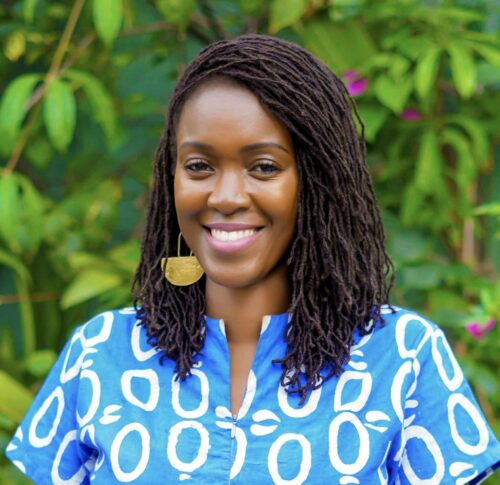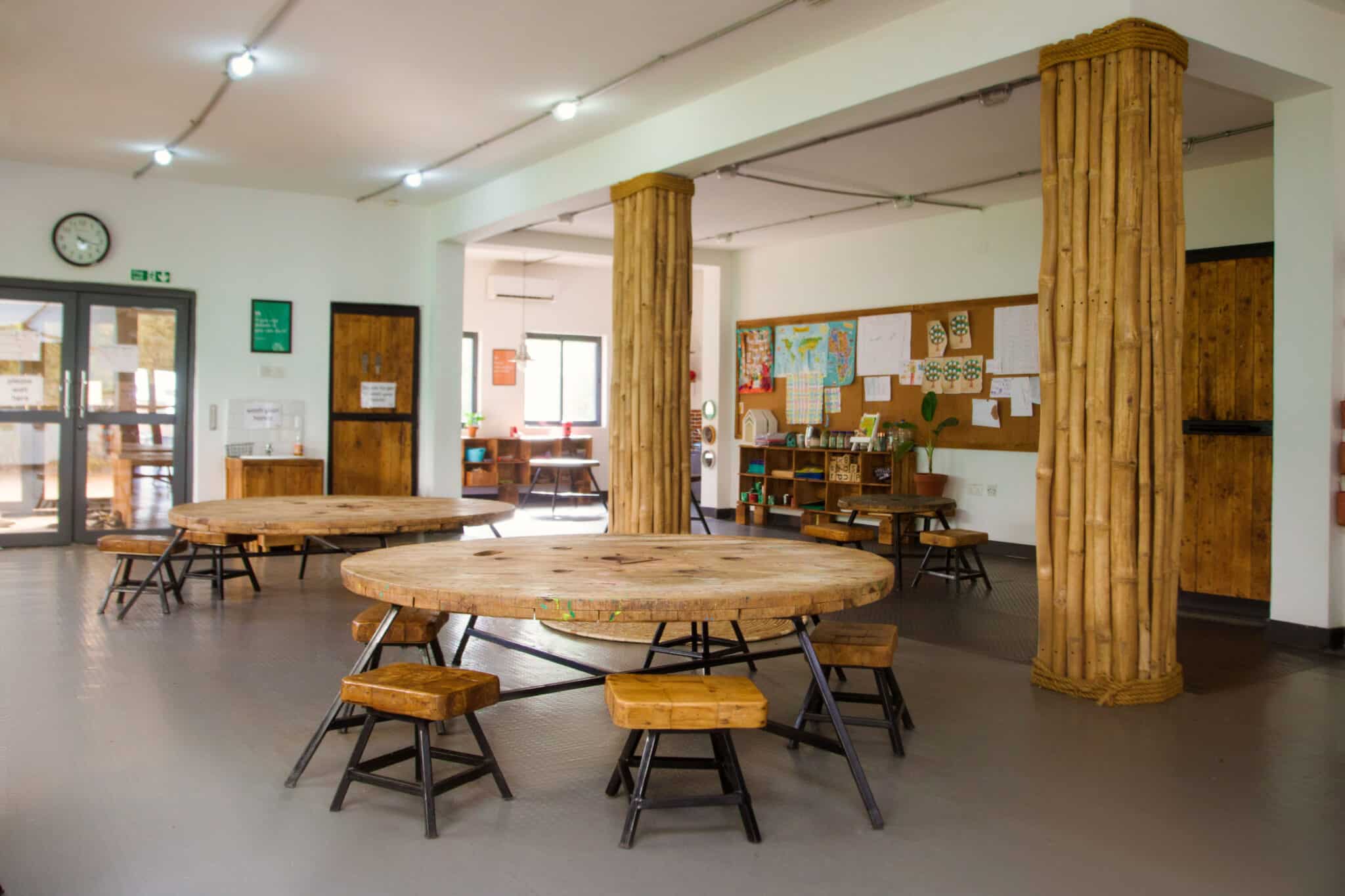Reimagining Education in Nigeria: The Journey to Building KEY Academy
KEY Academy is Nigeria’s first 100% project-based learning school, designed to nurture curious, capable, and future-ready learners. Founded in 2019, the school offers a transformative educational model that equips children with the academic foundations, emotional intelligence, and real-world skills they need to thrive in the 21st century. With a deep commitment to relevance, creativity, and purpose, KEY Academy is redefining what it means to learn — and to lead — in a Nigerian context.
Recently, we had the pleasure of connecting with Damilola Okonkwo, the visionary behind KEY Academy, who shared her journey with us.

Reimagining Education in Nigeria: The Journey to Building KEY Academy
Damilola is a mum, educator, founder of KEY Academy, and a lifelong learner. She is deeply passionate about reimagining education in Nigeria and creating learning environments that genuinely prepare children for the future. While she doesn’t come from a traditional educational background, her journey — both personal and professional — led her to this space over nine years ago, and she hasn’t looked back since.
Finance to Founding a School
Her career began in London, where she worked in asset management at JP Morgan and Credit Suisse. After returning to Nigeria, she joined FBN Capital (now FBNQuest), where she led the Asset Management Strategy and Corporate Development teams. It was a high-impact phase of her life that shaped her strategic thinking and leadership.
After taking a career break to start a family, Damilola co-founded The Alternative Learning Centre (ALC) in 2016. ALC focused on pre-school and after-school enrichment programs, helping children develop critical thinking, creativity, and other essential 21st-century skills. That experience sparked a question that stayed with her: What would a world-class, 21st-century school look like in a Nigerian context?
Her experience as a parent inspired the journey to KEY Academy. She was searching for a school that nurtured curiosity, valued emotional intelligence, saw children as capable and thoughtful individuals, and equipped them with practical skills for the real world. That was when she realized what she wanted didn’t exist. So, in 2019, she launched KEY (Keep Educating Yourself) Academy with a small group of children, a passionate team, and a bold vision.
“In spite of all my fears and doubts, I stopped searching and started building. It’s been a scary, challenging, and deeply meaningful journey — and I wouldn’t trade it for anything.” — Damilola
Today, KEY is Nigeria’s first 100% project-based learning school, and it continues to grow as a vibrant learning community. The school aims to expand through secondary school by 2027. At KEY, education is rooted in creativity, relevance, and purpose.
At KEY, education is rooted in creativity, relevance, and purpose. Share on XWhat Makes KEY Academy Different?
KEY Academy challenges the traditional educational model. The school doesn’t teach to test; it imparts a love for lifelong learning. Students learn through hands-on, inquiry-based projects that connect classroom lessons to the world around them.
Projects are interdisciplinary. For example, a unit on food systems might integrate biology, math, literacy, and entrepreneurship. Co-learners (teachers) serve as facilitators, guiding children through projects rather than delivering one-way lectures. Instead of treating subjects as isolated silos, KEY designs integrated termly projects that combine multiple disciplines.
KEY also emphasizes essential 21st-century skills, including empathy, collaboration, critical thinking, and resilience. Through partnerships with professionals, students solve real-world problems and gain insights into diverse industries. This is what learning for life looks like.
Preparing Students for the Future of Work
In an ever-evolving world, KEY focuses on nurturing adaptable, capable learners. Students develop transferable skills through projects that require creativity, communication, time management, leadership, and reflection.
From pitching business ideas to solving environmental challenges, students build confidence and real-world competencies. Core literacy and numeracy are seamlessly integrated into every project. Students are also introduced to coding, digital literacy, financial management, and enterprise from an early age, ensuring they are not just future-ready but future-proof.
Being Nominated for the World’s Best School Prize
Damilola was in a project meeting when she received the email about KEY Academy’s nomination for the World’s Best School Prize. She sat quietly for a moment, letting the significance sink in. She hadn’t imagined KEY would receive global recognition so soon.
“It felt like an affirmation — not just for me personally, but for every Nigerian educator daring to reimagine education and push boundaries while trying to do things differently.”
What the Nomination Means
For Damilola, this nomination is not about her, but about the work. It shows that people are beginning to take notice, and it highlights what’s possible when education is built around children, not outdated systems. It’s a signal — and a reminder — to keep going, to keep dreaming, and to keep building.
“Starting KEY wasn’t easy. It required unlearning, resisting pressure to conform, and holding tightly to a vision that often felt countercultural. But the recognition is proof that the work matters. That it’s making a difference. That it’s worth it.”
Looking Ahead: The Vision for KEY Academy
KEY Academy is just one part of a broader vision. In September 2027, the school will open its new 15,000 sqm secondary school campus with an innovation centre for education. This campus will allow KEY to apply everything it has learned to scale initiatives in teacher training, accreditation, events, books, digital content, and become a hub for educational research and reform.
The goal? To democratize access to 21st-century, project-based learning so children across Nigeria can benefit from a transformative education.
What Role Should the Public and Private Sectors Play?
“Education is too big and too urgent a problem for one sector to solve alone,” says Damilola. The public sector sets the tone and direction, but the private sector often has the resources, agility, and innovation to drive change faster.
What’s needed is a true partnership — where policy is shaped by insight from the field, and innovations from the private sector are supported and scaled by the government. In the digital age, this includes working together to build infrastructure, train teachers, and design curricula that reflect the realities our children are growing into.
And it requires long-term thinking. “The digital age isn’t just about coding and devices. It’s about creativity, adaptability, ethical thinking, and lifelong learning. Both sectors must commit to building an education system that prepares children not just to survive the future, but to shape it.”

A Final Word
To parents, educators, and policymakers, Damilola says: “Change is possible. I know our education system can feel heavy, slow, and overwhelming at times, but I’ve seen firsthand what can happen when we start small, stay curious, and focus on what really matters: our children.”
KEY Academy didn’t start because she had all the answers. It started with a handful of children and a conviction that things could be different. Six years later, they’re still building — still making mistakes, still learning, still growing. And that’s okay.
“If we all commit to doing the work, imperfectly but intentionally, I truly believe we can create an education system that works for every child in Nigeria. I intend to keep showing up, every day, to be part of that story.” — Damilola
Vote for KEY Academy!
The World’s Best School Prizes are the world’s most prestigious education awards. KEY Academy is one of the top 10 finalist schools and the first school in Nigeria to be nominated for this recognition.
Click here to vote for KEY Academy and support a new vision for education in Nigeria.
Read Also:
Back to School – 6 Essential Tips to Prioritize Your Children’s Mental Health